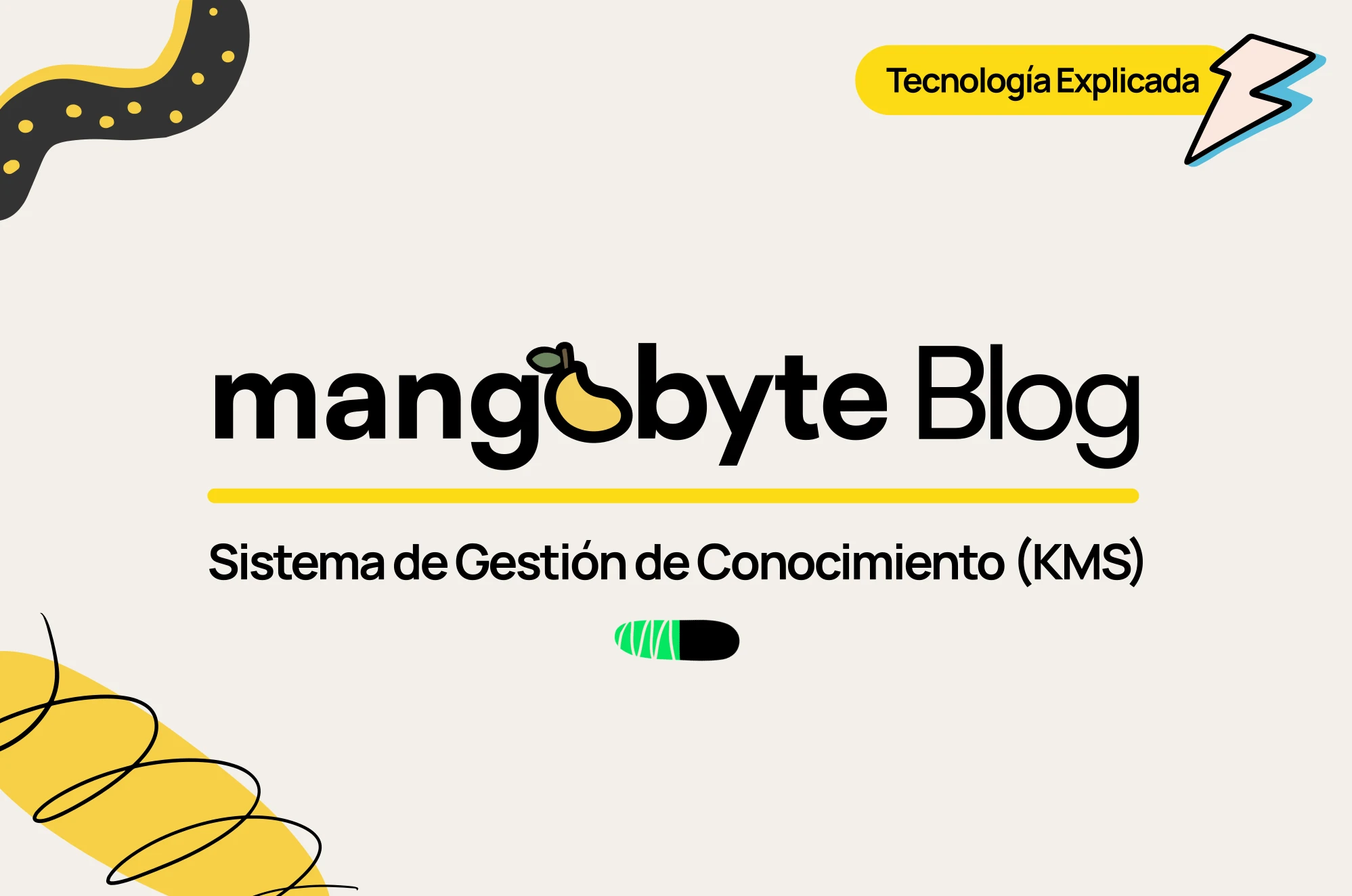Technology Explained
Oct 9, 2024
|
Read: 5 min

MangoByte Staff
Business Digital Transformation | MangoByte
Just like with people, the knowledge that a company possesses is one of its main sources of competitive advantage. Companies can access the same tools and public resources as their competitors, but the real value lies in the specialized and unique knowledge they have accumulated over time. That unique understanding can make the difference between leading a market or falling behind.
Imagine a company that has accumulated deep knowledge about its operations, customers, and processes. This knowledge gives it a strategic advantage over its competitors who lack that expertise. However, managing this knowledge can be a challenge, especially when it is spread across hundreds or thousands of employees in different areas or locations. This is where Knowledge Management Systems (KMS) come into play, allowing all that knowledge to flow efficiently throughout the organization, creating interactions that multiply it and increase its value.
What is a Knowledge Management System (KMS) and why do you need it?
A Knowledge Management System (KMS) is a platform designed to store, organize, and share the knowledge generated within a company. Its main goal is to centralize documents and improve access to information, ensuring it is available to the right people at the right time.
How many times has your team wasted time looking for scattered information or faced delays because they couldn't find what they needed? When documents are distributed among different departments—manuals, guides, reports, and specific knowledge—access becomes slow and costly. A KMS removes these barriers by centralizing all documentation in one place, enhancing business efficiency and optimizing productivity.
But a KMS is more than just a repository. It is an interactive platform that allows employees to collaborate, update content, and share ideas in real-time, fostering a knowledge-driven organization that keeps the company agile and aligned. Below, we see 5 practical examples of how a KMS can transform your organization.
1. Internal Policies and Processes: The Heart of Operation
Policies and processes are the operational heart of any organization, but when they are scattered or outdated, accessing the correct information becomes difficult. A KMS centralizes these policies, ensuring that all employees work with the correct, up-to-date, and available information when they need it. This eliminates confusion and optimizes daily operations.
2. Efficient Onboarding: Easing the Burden on Current Employees
The process of onboarding new employees is often demanding, not only for newcomers but also for current employees, who often have to take on the responsibility of training and guiding them. With a KMS, new team members can quickly access all the necessary information to integrate autonomously and efficiently, reducing reliance on current employees. This optimizes training time, speeds up the learning curve, and improves productivity from day one.
3. Knowledge Retention: Don't Lose Value When Talent Leaves
When employees with years of experience leave the company, their knowledge often leaves with them. A KMS captures and preserves that valuable knowledge, ensuring that the lessons learned and accumulated experience remain available to the rest of the team. This not only reduces the risk of operational loss but also ensures that critical knowledge is always accessible, regardless of staff turnover.
4. Decision Making: Access Information at the Right Time
In today's competitive environment, speed and accuracy in decision-making are key to success. With a KMS, executives have immediate access to the critical information they need to make strategic decisions, backed by reliable data. This eliminates delays caused by lack of information and ensures that decisions are based on the most up-to-date and relevant knowledge, driving greater agility and effectiveness across the organization.
5. Continuous Improvement: Drive Innovation and Active Learning
A KMS not only organizes existing knowledge but also facilitates the creation and sharing of new ideas. By capturing the lessons learned in each project and sharing best practices among teams, it fosters constant innovation. This allows teams to collaborate more effectively, learn from each other, and quickly apply solutions that improve efficiency and quality of processes. In this way, a more agile organizational culture is created, where knowledge evolves and expands continuously.
The Takeaway
In a world where knowledge is power, a Knowledge Management System (KMS) can transform your organization’s accumulated knowledge into a real competitive advantage. When knowledge flows without barriers, teams work more efficiently, decisions are made with confidence, and expertise is retained within the company, serving the entire organization. The benefits are clear; the question is: are you leveraging all the knowledge your company possesses?
At MangoByte, we develop KMS solutions tailored to your needs, ensuring they align with your objectives and enhance your competitive edge. Contact us today to start transforming the way you manage knowledge within your organization.


